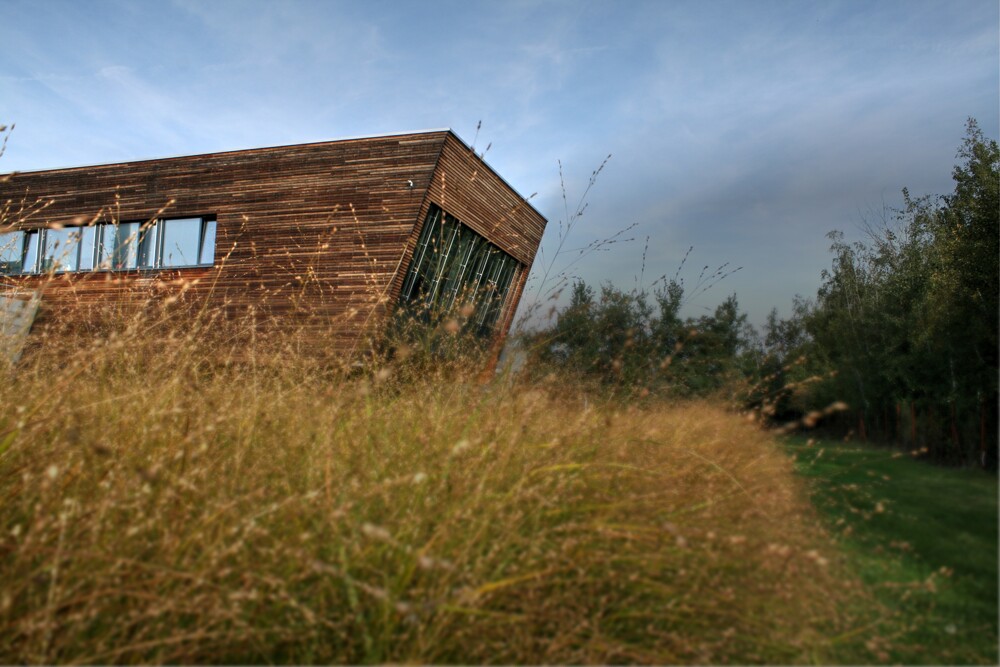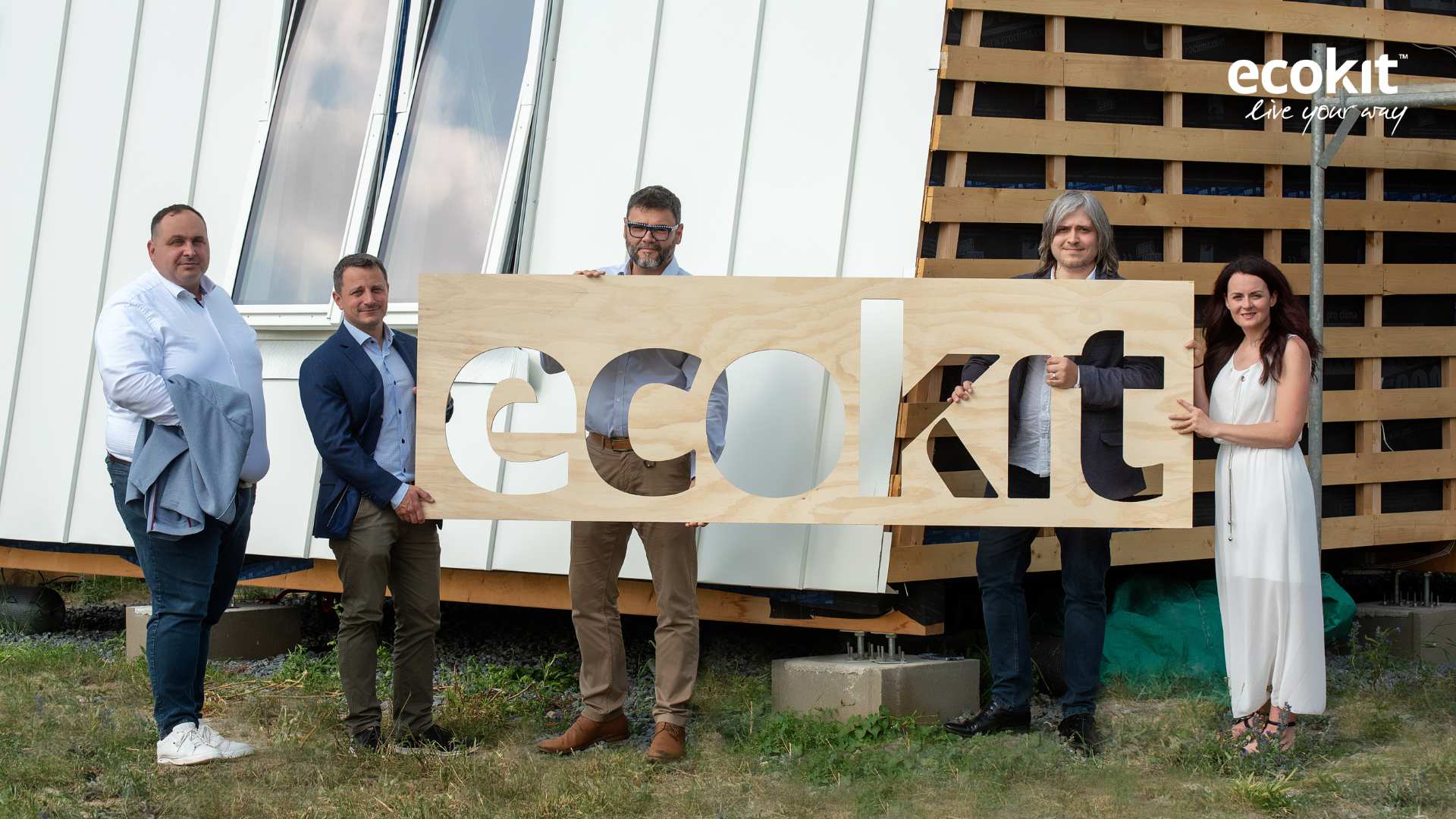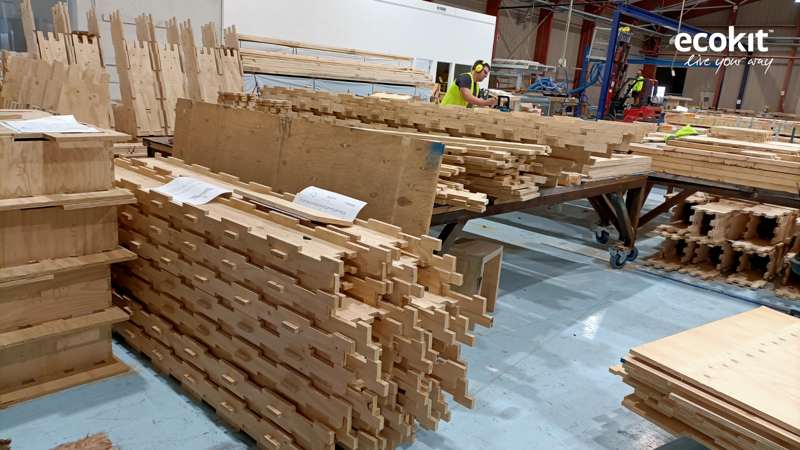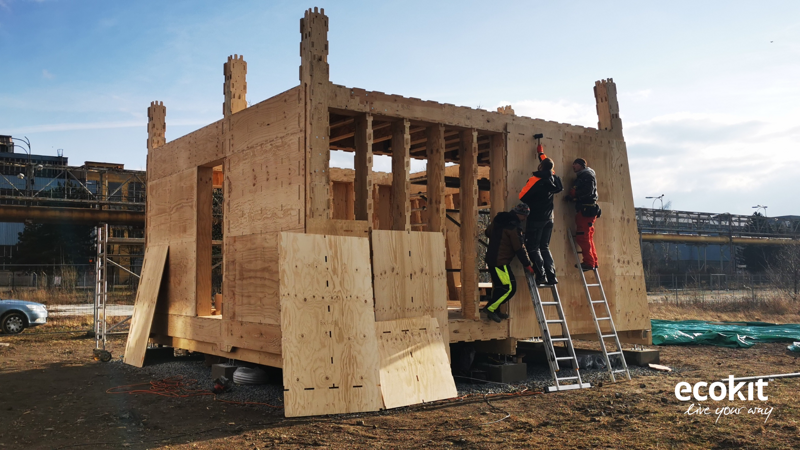

The first comfortable, low-energy and environmentally friendly ecokit home designed by Czech native Kamila Novotna was built
in far-away Australia in 2018. Today, her prefabricated ecokit construction system is available in most of the Americas and
is about to be introduced to the European market. The University Centre for Energy Efficient Buildings CTU has also been involved
in its further development since last year as part of a joint project.
The advantage of the ecokit
construction system is that its components are prefabricated, lightweight, simple and come from renewable resources. They
fit together easily, there is no traditional construction, they only need to be assembled. Without measurements, cutting,
skilled builders and heavy machinery, they can be used to build a house literally in a matter of weeks.
This was also confirmed at the CTU UCEEB campus in Buštěhrad, where four workers with no previous experience in building
timber structures and no heavy equipment built the structure of a two-storey experimental building from the ecokit system
in just one week. This was then used by the research team to monitor thermal and moisture phenomena in the envelope, in addition
to demonstrating the functionality of such prefabricated structures. In the last phase of the project, the speed of disassembly
and sorting of the individual components for reuse will also be measured.
As part of the research, we have carried out a comprehensive analysis of the structural system, focusing on the variability
of the geometry of the house, reviewing the composition of the wall, roof and ceiling structures and their thermal performance.
We also participated in the digitalization and automation of the production of the ecokit system through BIM (Building Information
Modeling), which allows not only to take full advantage of prefabrication and modular construction techniques, but also to
analyze and optimize the building already at the design stage.
Pavla Novotná, co-founder of ecokit, commented on the collaboration, "We knew that our team was capable of generating meaningful,
innovative and marketable solutions, but we lacked in-depth knowledge of the subject. UCEEB is involved in the design of timber
buildings and through the collaboration of experts from different faculties at UCEEB is able to solve multidisciplinary projects.
The cooperation has enriched our team with knowledge potential, experience and scientific knowledge that we were looking for
so vainly overseas."
The project "Prefabricated recyclable wood-based frame building system" FW04020216 was funded with the support of the Czech
Technology Agency and the Ministry of Industry and Trade under the TREND Programme.

